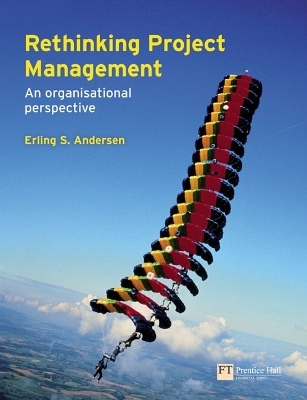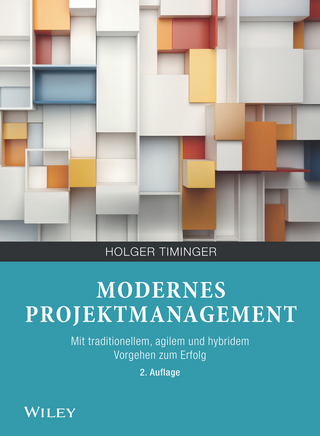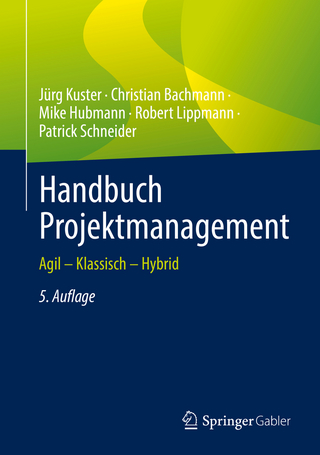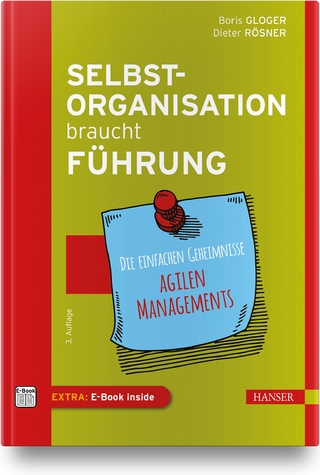
Rethinking Project Management
Financial Times Prentice Hall (Verlag)
978-0-273-71547-4 (ISBN)
List of figures
List of tables
Preface
Publisher's acknowledgements
Chapter 1 The project concept and the organisational perspective
1.1 Projects and perspectives
1.2 The task perspective
1.2.1 Definition and main ideas
1.2.2 Theoretical base
1.2.3 Criticisms of task perspective
1.3 The organisational perspective
1.3.1 Definition and main ideas
1.3.2 Theoretical base
1.4 A universal project management theory or several contingency theories?
1.4.1 Types of project
1.4.2 Life cycle models
1.4.3 How this affects what follows
1.5 The project assignment
1.5.1 The rationale of the project – stability and change at the same time
1.5.2 Dividing responsibilities between the project and base organisation
1.5.3 What sort of changes is possible in a base organisation?
1.5.4 Pursuing different types of change at the same time – PSO
1.5.5 Evolutionary development
1.5.6 Resistance to change
1.5.7 The evolving task
1.6 Projects and time
1.6.1 Cyclical, linear and alternating time
1.6.2 Temporal focus and temporal depth
1.6.3 Polychronicity and monochronicity
1.6.4 Scheduling of activities – entrainment of processes
1.6.5 Coping with stress
1.7 A project management theory based on the organisational perspective
1.7.1 Concepts, theories and methods
1.7.2 A project management theory
1.7.3 Theory elaboration
Notes to Chapter 1
Chapter 2 The foundation of the project
2.1 Strategies affecting projects
2.1.1 Change strategy: punctuated equilibrium
2.1.2 Change strategy: event pacing or time pacing
2.1.3 Positioning strategy
2.1.4 Implementation strategies
2.2 Project uncertainty
2.2.1 The concept of uncertainty
2.2.2 Attitudes to uncertainty
2.2.3 Uncertainty management strategies
2.3 Project stakeholders
2.3.1 Salience
2.3.2 A strategy for dealing with stakeholders
2.3.3 Constructing a coalition – the contribution/reward model
2.4 Establishing the project
2.4.1 Business case
2.4.2 Project mandate
2.5 Project mission, goals and success criteria
2.5.1 Missionand goals
2.5.2 Elaborating the mission – mission breakdown structure
2.5.3 Project success criteria
2.5.4 Moving targets
2.6 Project scope and delimitations
2.6.1 Freedom of action
2.6.2 Project responsibilities
2.6.3 Project completion date
2.7 &
| Erscheint lt. Verlag | 15.5.2008 |
|---|---|
| Verlagsort | Harlow |
| Sprache | englisch |
| Maße | 188 x 246 mm |
| Gewicht | 684 g |
| Themenwelt | Wirtschaft ► Betriebswirtschaft / Management ► Projektmanagement |
| ISBN-10 | 0-273-71547-X / 027371547X |
| ISBN-13 | 978-0-273-71547-4 / 9780273715474 |
| Zustand | Neuware |
| Haben Sie eine Frage zum Produkt? |
aus dem Bereich


